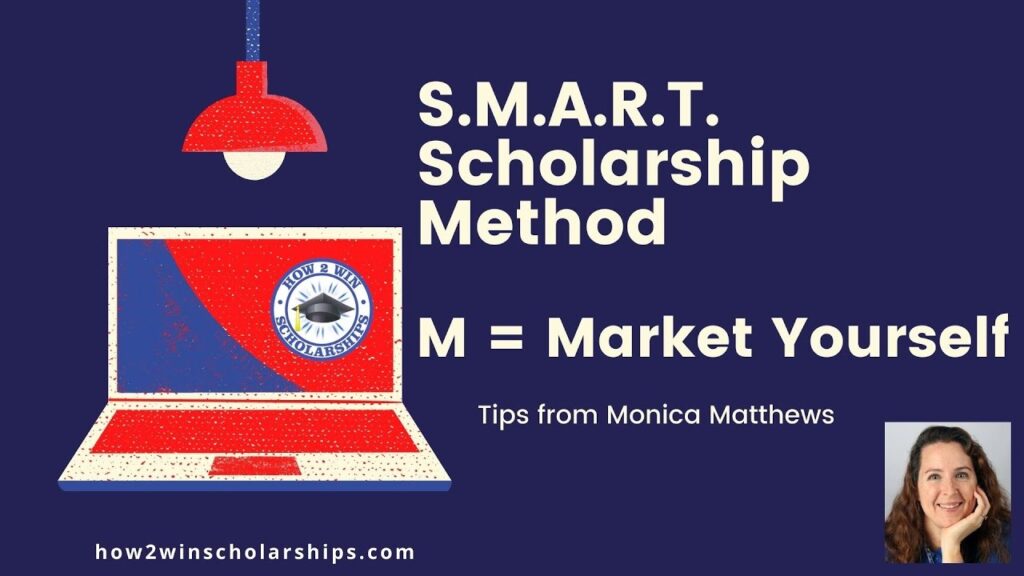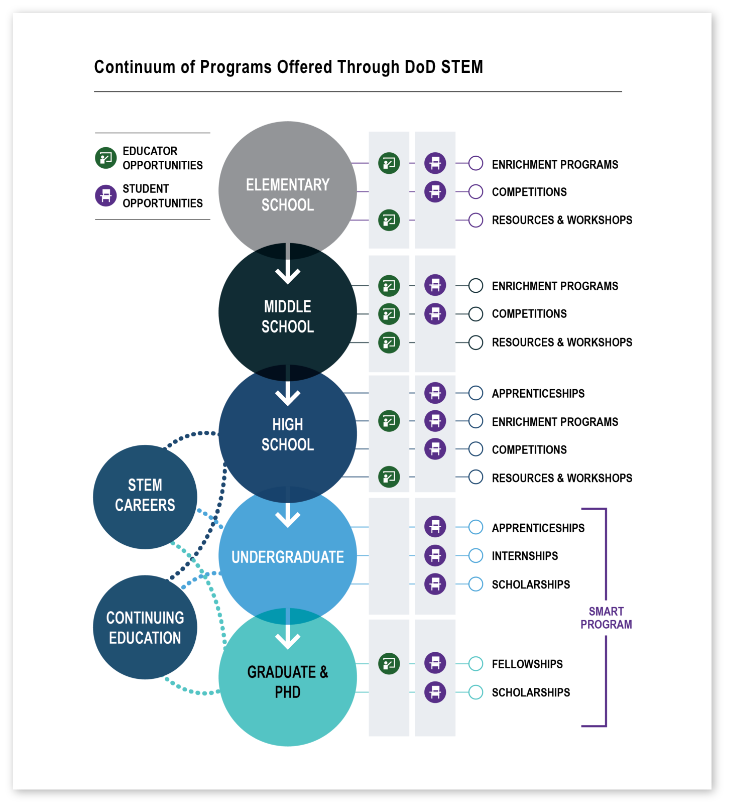Apply Smart: How to Target the Right Scholarships

Securing scholarships can significantly ease the financial burden of higher education, but the sheer volume of opportunities can be overwhelming. Many students apply for any and every scholarship they find, hoping something will stick. This approach, however, is often inefficient and yields disappointing results. A more strategic approach focuses on targeted applications, aligning your skills, interests, and background with specific scholarship criteria. This article explores the importance of researching and identifying scholarships that are a strong fit, maximizing your chances of success and making your scholarship application process more effective. Learn how to apply smart, not just hard!
Apply Smart: How to Target the Right Scholarships
Applying for scholarships can feel overwhelming, but a strategic approach dramatically increases your chances of success. Targeting the right scholarships means focusing your efforts on opportunities where you meet the eligibility criteria, your profile aligns with the scholarship's purpose, and you have a realistic chance of winning. This involves diligent research, self-assessment, and understanding what makes you a strong candidate for a particular scholarship. By focusing on quality over quantity, you can maximize your time and energy, resulting in a higher return on investment in your scholarship application efforts.
Know Yourself: Identify Your Strengths and Interests
Before diving into scholarship searches, take time to reflect on your academic achievements, extracurricular activities, skills, and passions. Document your GPA, standardized test scores, volunteer experiences, leadership roles, and any unique talents or interests you possess. This self-assessment will help you identify scholarships that specifically reward achievements or support students with similar backgrounds and goals. Understanding your strengths also allows you to craft compelling essays and personal statements that showcase your qualifications in a way that resonates with scholarship providers.
Research Scholarships Based on Specific Criteria
Avoid applying for every scholarship you find; instead, use targeted search strategies to identify opportunities that are a good fit. Utilize online databases, university resources, and professional organizations to find scholarships based on your major, ethnicity, gender, religious affiliation, or other unique characteristics. Carefully review the eligibility requirements, deadlines, and application instructions for each scholarship. Prioritize those where you meet most, if not all, of the criteria, and where your background and experiences align with the scholarship's mission.
Tailor Your Application Materials
Resist the urge to use a generic application for every scholarship. Instead, customize your essays, personal statements, and resumes to reflect the specific requirements and values of each scholarship provider. Highlight experiences and accomplishments that are relevant to the scholarship's mission and demonstrate your understanding of the organization's goals. Tailoring your materials shows that you've taken the time to research the scholarship and are genuinely interested in the opportunity.
Craft a Compelling Narrative
Scholarship committees are not just looking for academic achievers; they're looking for individuals with compelling stories and a clear vision for the future. Use your application materials to showcase your personality, passions, and goals. Connect your past experiences to your future aspirations and explain how the scholarship will help you achieve your dreams. Be authentic, genuine, and let your unique voice shine through in your writing.
Proofread and Seek Feedback
Before submitting your application, thoroughly proofread all materials for errors in grammar, spelling, and punctuation. Even minor mistakes can detract from your credibility and negatively impact your chances of winning. Ask teachers, mentors, or family members to review your application and provide feedback on clarity, content, and overall impact. A fresh pair of eyes can catch errors you may have missed and offer valuable suggestions for improvement.
| Scholarship Type | Eligibility Criteria | Example |
|---|---|---|
| Academic Merit | High GPA, test scores, academic achievements | National Merit Scholarship |
| Need-Based | Financial need as determined by FAFSA | Pell Grant |
| Major-Specific | Enrolled in a specific field of study | Society of Women Engineers Scholarship |
| Minority/Underrepresented Group | Membership in a specific demographic group | UNCF Scholarships |
| Community Service | Extensive volunteer experience | Prudential Spirit of Community Awards |
https://youtube.com/watch?v=cFcKLcGmi6Y%26pp%3DygUOI2FwcGx5aW5nc21hcnQ%253D
How do I find the right scholarship for me?
How to Effectively Use Scholarship Search Engines
- Utilize Advanced Filters: Scholarship search engines offer various filters, such as GPA, major, ethnicity, and income. Use these filters to narrow down your search to scholarships that match your profile.
- Regularly Update Your Profile: Keep your profile on scholarship search engines updated with the latest information. This ensures that you receive relevant scholarship recommendations.
- Explore Different Search Engines: Don't rely on just one search engine. Explore multiple platforms to maximize your chances of finding suitable scholarships. Each platform may have different listings.
The Importance of Networking for Scholarship Opportunities
- Connect with Professors and Mentors: Professors and mentors often have connections to scholarship providers and can provide valuable insights. Seek their advice and guidance.
- Attend Career Fairs and Workshops: Career fairs and workshops related to your field of study can provide opportunities to network with professionals who may know about relevant scholarships.
- Join Professional Organizations: Membership in professional organizations can open doors to scholarship opportunities and networking events where you can connect with potential scholarship providers.
Crafting a Compelling Scholarship Essay
- Understand the Essay Prompt: Carefully read and understand the essay prompt. Make sure your essay directly addresses the prompt and demonstrates your understanding of the scholarship's goals.
- Tell a Story: Use storytelling techniques to engage the reader and showcase your personality, experiences, and achievements. A compelling narrative can make your essay stand out.
- Proofread and Edit: Before submitting your essay, carefully proofread and edit it for grammar, spelling, and punctuation errors. Ask a trusted friend or mentor to review your essay for clarity and coherence.
Leveraging Your Academic Achievements and Extracurricular Activities
- Highlight Academic Excellence: Showcase your academic achievements, such as high GPA, honors courses, and academic awards. Explain how your academic pursuits have prepared you for your future goals.
- Demonstrate Leadership Skills: Highlight your leadership roles in extracurricular activities and community involvement. Explain how your leadership experiences have shaped you as a person.
- Quantify Your Accomplishments: Whenever possible, quantify your accomplishments with numbers and data. This provides concrete evidence of your impact and achievements.
Understanding Different Types of Scholarships
- Merit-Based Scholarships: Merit-based scholarships are awarded based on academic achievements, leadership skills, and extracurricular activities. Focus on highlighting your strengths in these areas.
- Need-Based Scholarships: Need-based scholarships are awarded based on financial need. Gather all necessary financial documents and accurately complete the financial aid application.
- Specific-Criteria Scholarships: Some scholarships are awarded based on specific criteria, such as ethnicity, gender, or field of study. Make sure you meet all eligibility requirements before applying.
How to apply for the Target scholarship?

Understanding the Target Scholarship Landscape
Target offers various scholarship programs aimed at supporting students pursuing higher education. However, it's important to note that Target does not directly offer a general "Target Scholarship" program anymore like it used to. Instead, they partner with organizations that administer scholarships and educational grants. Understanding the specific scholarships available through Target's partners is crucial. To find these partnerships and specific scholarship opportunities, you will need to:
- Visit the Target Corporate Responsibility website or the Target Careers page to look for announcements about educational partnerships and scholarship programs.
- Search for scholarship programs offered through organizations that Target supports. These organizations often have their own specific eligibility requirements and application processes.
- Pay attention to announcements around back-to-school season as this is often when many scholarship programs are promoted.
Identifying Partner Scholarship Programs
Because Target primarily works with partner organizations to provide scholarships, the application process varies depending on the specific scholarship program. Researching these partner organizations is the key to finding a scholarship opportunity. It's essential to identify which organizations Target is currently partnered with for scholarships and then:
- Visit the websites of the partner organizations to find information about their scholarship programs.
- Carefully review the eligibility requirements of each scholarship. These may include GPA requirements, field of study restrictions, financial need criteria, and community involvement requirements.
- Note the application deadlines for each scholarship. Missing the deadline is a common mistake and will disqualify your application.
Preparing Your Application Materials
While the specific requirements vary from scholarship to scholarship, some standard application materials are typically needed. Gathering these documents in advance will make the application process smoother. Generally, you should prepare:
- Official academic transcripts. Request these well in advance of the deadline, as it can take time for schools to process and send them.
- Letters of recommendation. Choose recommenders who know you well and can speak to your academic abilities, character, and potential. Give them ample time to write thoughtful recommendations.
- A personal essay or statement of purpose. This is your opportunity to tell your story and explain why you deserve the scholarship. Highlight your achievements, goals, and how the scholarship will help you achieve them.
Crafting a Compelling Personal Essay
The personal essay is a crucial part of many scholarship applications. This is your chance to showcase your personality, goals, and experiences. To write a compelling essay:
- Understand the essay prompt or question. Make sure your essay directly addresses what the scholarship committee is looking for.
- Tell a story. Use anecdotes and personal experiences to illustrate your points and make your essay more engaging.
- Proofread carefully. Errors in grammar and spelling will weaken your application. Have someone else review your essay for clarity and accuracy.
Submitting Your Application and Following Up
After preparing your application materials, it's time to submit your application. Double-check everything before submitting. After you submit your application:
- Review all submitted materials before the deadline. Confirm all attachments and information are correct.
- Save a copy of your application for your records.
- Note the timeframe for when scholarship recipients will be notified. If you haven't heard back by the stated date, it's acceptable to send a polite follow-up email to inquire about the status of your application.
What is the SMART Scholarship criteria?

Eligibility Requirements
- U.S. Citizenship: Applicants must be citizens of the United States. This is a fundamental requirement as the program is designed to bolster the domestic STEM workforce within the DoD.
- Age: Applicants must be at least 18 years of age on the application closing date.
- Enrollment in a STEM Field: Applicants must be pursuing a degree in one of the designated STEM disciplines prioritized by the DoD. These fields include (but aren't limited to) engineering, computer science, physics, mathematics, and specific areas of biology and chemistry related to defense interests. It is important to verify your degree field is covered on the SMART Website.
- Academic Standing: Students must maintain a minimum cumulative GPA, which is typically around 3.0 on a 4.0 scale. Maintaining good academic standing throughout the scholarship period is also crucial.
- Ability to Obtain Security Clearance: Applicants must be able to obtain and maintain a security clearance, as they will be working in sensitive positions within the DoD after graduation. This involves a background check and meeting specific security requirements.
Academic Performance
- GPA Requirements: A strong GPA, generally 3.0 or higher, is essential. The higher the GPA, the more competitive the application.
- Coursework Rigor: The selection committee assesses the difficulty and relevance of the applicant's coursework. Taking advanced courses in their STEM field demonstrates a strong commitment to learning and mastery of the subject matter.
- Transcripts: Official transcripts from all colleges and universities attended are required to verify academic performance.
Commitment to the DoD Mission
- Interest in Defense-Related Research: Applicants should demonstrate a genuine interest in contributing to defense-related research and development. This can be demonstrated through prior research experience, relevant projects, or a clear articulation of their career goals.
- Alignment with DoD Priorities: The SMART Scholarship focuses on specific STEM fields that are critical to the DoD's mission. Applicants should align their academic and career goals with these priorities.
- Service Agreement: Recipients are obligated to work for the DoD as a civilian employee after graduation for a period commensurate with the length of their scholarship. Fulfilling this service agreement is a core requirement.
Application Essay and Personal Statement
- Demonstrating Passion: The essay should convey a genuine passion for STEM and a strong desire to contribute to the DoD's mission.
- Highlighting Relevant Experience: Applicants should highlight any relevant experience, such as research projects, internships, or volunteer work, that demonstrates their skills and interests.
- Articulating Career Goals: The essay should clearly articulate the applicant's career goals and how the SMART Scholarship will help them achieve those goals within the DoD.
- Writing Quality: The essay must be well-written, grammatically correct, and free of errors. It should also be concise and engaging.
Selection Process
- Competitive Review: The selection process is highly competitive, with a large number of applicants vying for a limited number of scholarships.
- Holistic Assessment: The selection committee takes a holistic approach, considering all aspects of the application, including academic performance, research experience, essays, and letters of recommendation.
- Interviews: Some applicants may be invited for interviews to further assess their qualifications and suitability for the program.
- DoD Needs: The selection is ultimately driven by the needs of the DoD and the availability of positions within participating DoD facilities.
Frequently asked questions
What is the importance of targeting the right scholarships?
Understanding the importance of targeting is crucial because it significantly increases your chances of winning a scholarship; by focusing on scholarships that align with your specific profile, academic achievements, interests, and background, you reduce competition and enhance your application's relevance and impact.
How can I identify scholarships that I am eligible for?
Identifying eligible scholarships involves utilizing scholarship search engines and databases, carefully reviewing eligibility criteria (such as GPA, major, and residency), exploring niche scholarships based on your unique characteristics (e.g., ethnicity, hobbies, or career goals), and consulting with your school counselor or financial aid office for local or institutional opportunities.
What information should I gather before applying for a scholarship?
Before applying, gather all necessary documents and information, including your academic transcripts, letters of recommendation, financial information (if required), extracurricular activities, awards and honors, and a well-crafted personal essay that highlights your achievements, experiences, and future aspirations.
How can I make my scholarship application stand out from the competition?
To make your application stand out, focus on crafting a compelling personal essay that showcases your unique story and passion, highlighting your accomplishments and goals in a meaningful way, obtaining strong letters of recommendation that attest to your character and abilities, and ensuring your application is error-free and demonstrates a strong commitment to your field of study.

